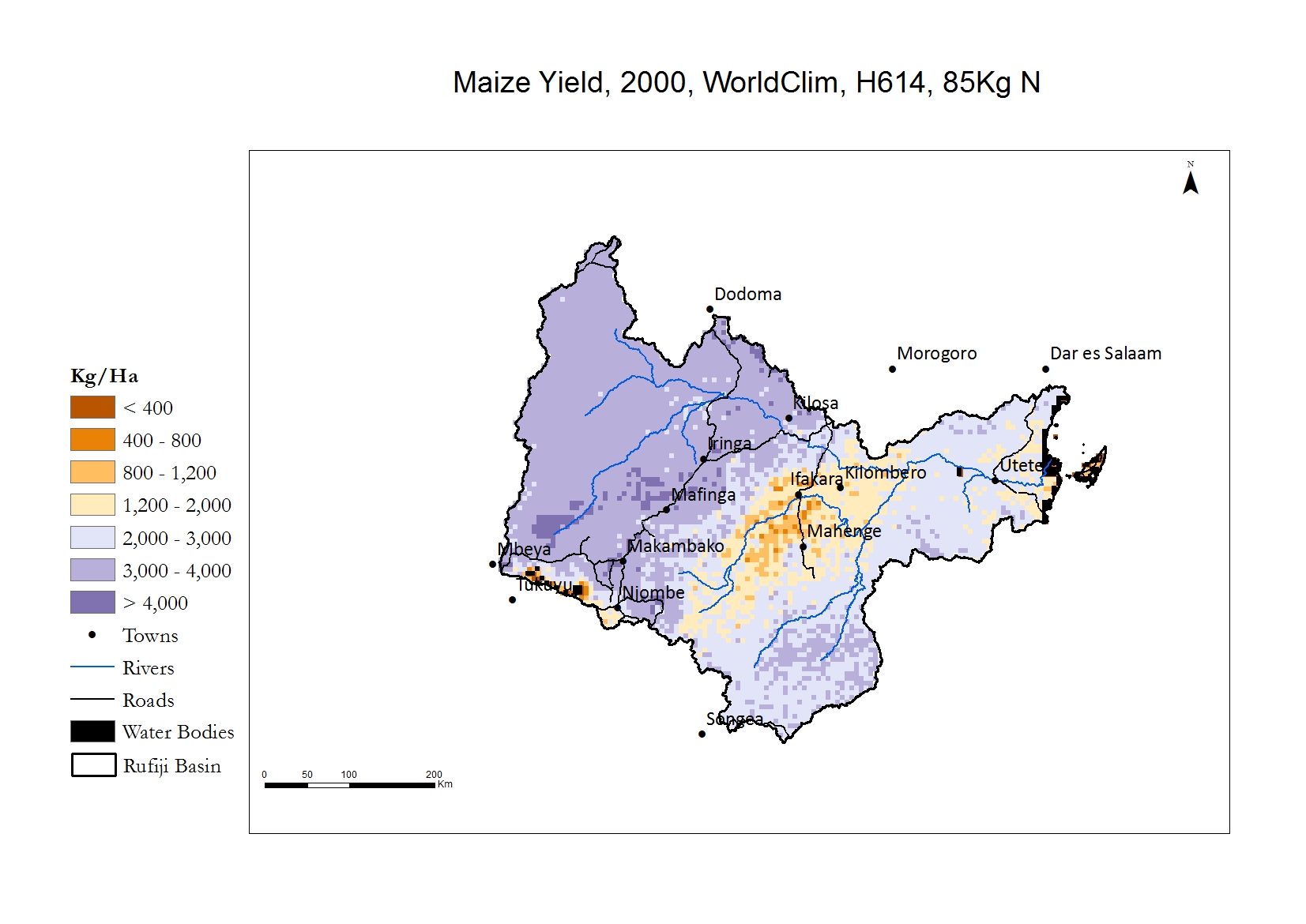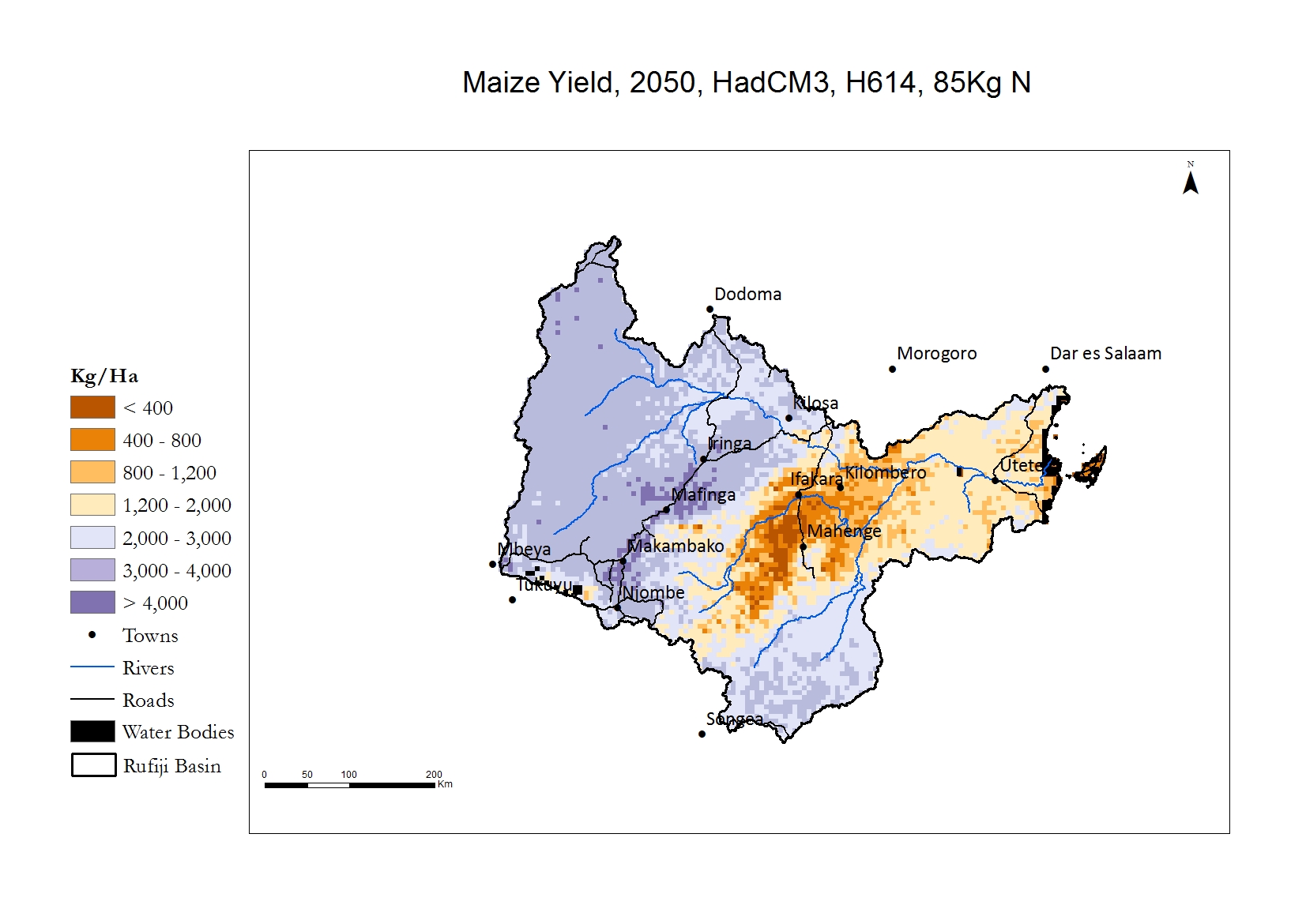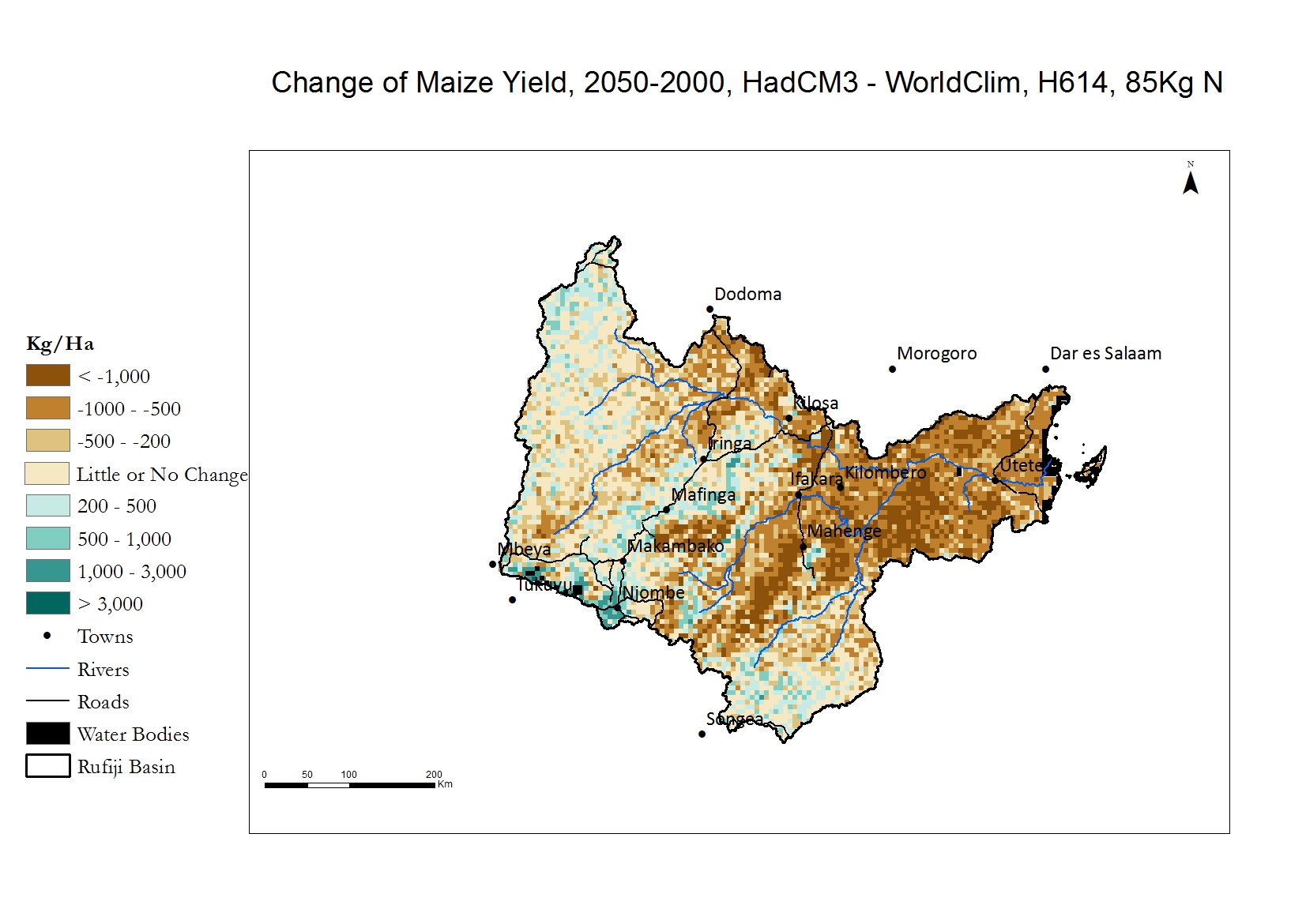Climate Effects
Maize is vulnerable to climate change and climate variability, particularly during its reproductive stage. Yields are particularly sensitive to water deficits during the flowering period, and farmers have noticed more frequent dry spells during the rainy seasons. Other changes in precipitation, particularly in growing season onset and length, also affect successful planting, growth and yield.
Maize does best under moderate temperatures, and its temperature range is greater than for rice. It has a higher ability to withstand cooler temperatures. Simulations reflect that maize is better suited in higher elevation zones than rice. In the lowlands, however, very warm minimum temperatures lead to higher respiration and less dry matter accumulation. Warmer minimum temperatures reduce maize yield while increasing its water demand.
Current
The most important limiting climate factor for maize production in the Rufiji Basin is water. Low precipitation locations mostly mirror lower yield locations. In contrast to rice, maize yields are lower in many of the warmest areas due to higher evapotranspiration and limited precipitation, and because maize is less tolerant of hot temperatures. The Highlands have sufficient water and conducive temperatures except for the highest elevation areas.

Future - 2050
Climate change is expected to affect maize production in the Basin because the warming temperatures will reduce the time to maturity and lower yield, hot temperatures above 35 °C inhibit growth and reproduction, and warmer minimum temperatures reduce yield while increasing its water demand. Particularly in warm locations with high water demand, the precipitation may be insufficient and water deficits can lower yields. The results using the HadCM3 GCM are provided. The distribution of the 2050 yield is similar to that of 2000, with higher yield in the Highlands and lower yields in the lowlands

Change
The maps of the change in yield show declining yield as brown and increases as cyan. Most of the Basin is projected to have declining maize yields with climate change, as temperatures warm, water demand increases yet precipitation is already limited across much of the basin. The GCM HadCM3 simulates a larger decline in yield because it projects little change or declining precipitation, whereas CCSM is a wetter model. However, both models simulate declining yields of around 500 kg/ha across most of the Basin except in the coldest, wettest zone where rising temperatures help the maize.

Comparison
 Current
Current




